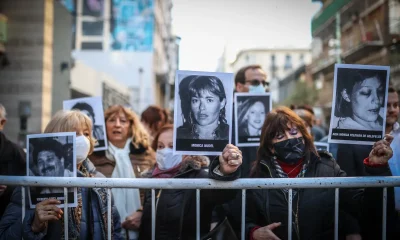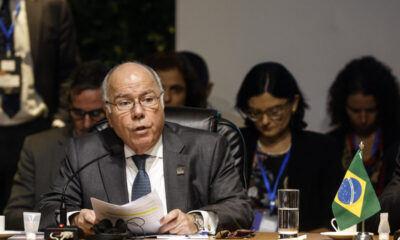International
World Cup run temporarily masks Argentina’s inflation misery
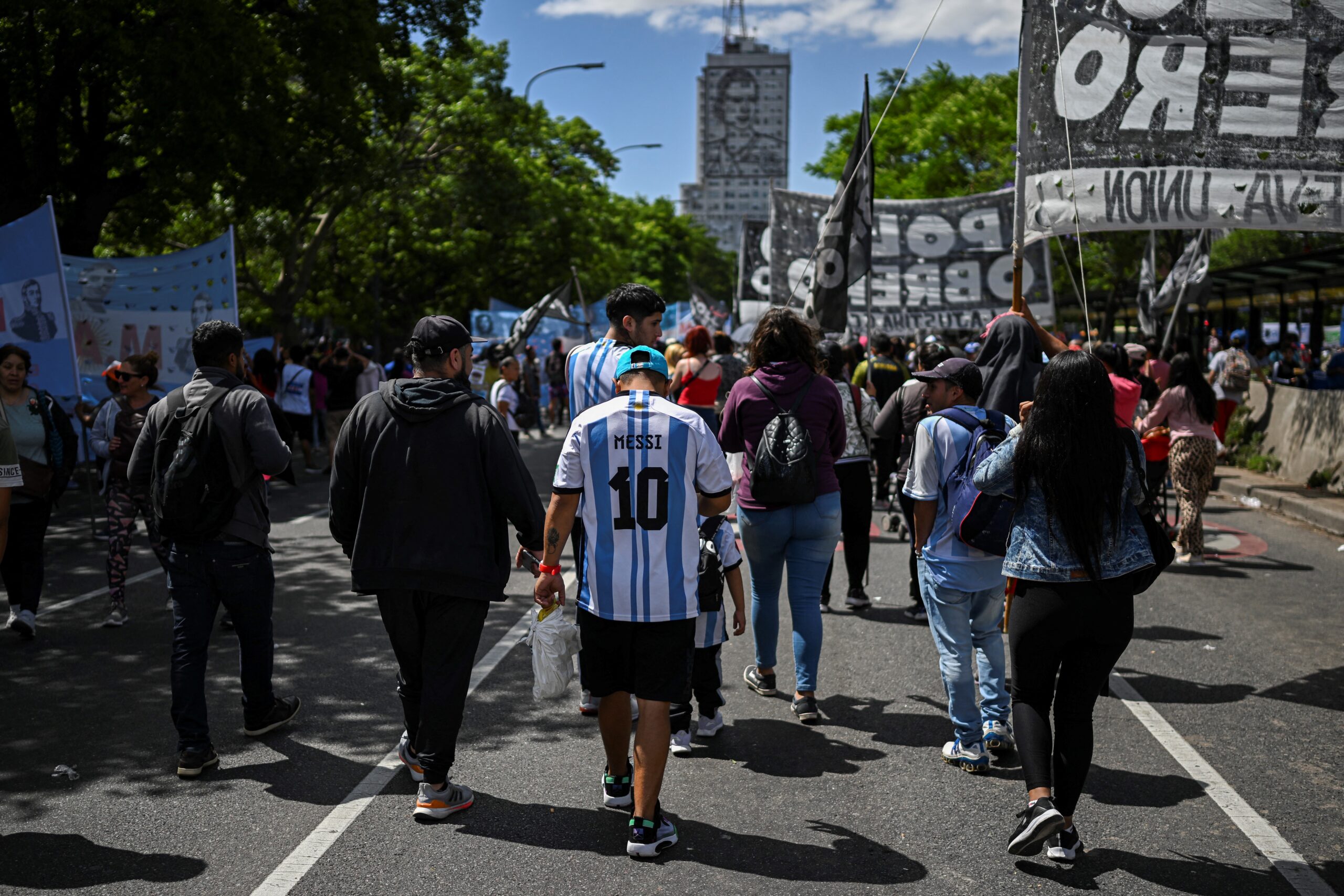
| By AFP |
Philippe BERNES-LASSERRE
Argentina’s economy may be sinking but the entire country is buoyant, basking in the elation of its football team led by iconic captain Lionel Messi reaching the World Cup final.
The dream of landing Argentina’s third world title, 36 years after the last one, seems — at least for now — to have let Argentines forget their woes.
That number three seems significant today, and not just because Messi and his teammates seek to put a third championship star on the team’s blue and white jersey.
Sporting glory arrives at a time when many people believe the inflation that has wreaked havoc on the South American nation’s economy will reach a barely believable triple digits for 2022.
Last Thursday, the INDEC statistics institute published the price index for November, around six percent, suggesting inflation, which already stood at 88 percent over the last 12 months, is not decelerating.
Argentina has had double-figure inflation for decades.
But there is a genuine feeling that soccer success — and that Messi magic — can alleviate the pain of millions in a country where the poverty level is over 40 percent.
Before the tournament in Qatar began, Argentina’s Labor Minister Kelly Olmos was even asked whether lowering inflation was more important than winning the World Cup.
“We must constantly work against inflation, but one month won’t make a huge difference,” she said.
“On the other hand, from a morale point of view, given what it means for all Argentines, we want Argentina to be champions,” Olmos added. “The Argentine people really deserve some joy.”
Predictably, that provoked a barrage of criticism.
‘A relief’
And yet Argentines crowd around television screens in droves to watch the team’s matches, whether in bars, homes, even a Buenos Aires ‘fan zone.’
Most of these fans could never dream of affording a ticket to Qatar in a country where the average wage is a meagre 66,500 pesos ($390).
“People are well aware of the problems” but football and the economic situation “are on parallel paths, they don’t meet,” Lucrecia Presdiger, a 38-year-old hospital worker, told AFP after Argentina’s quarter-final victory over the Netherlands.
“Many people really need this joy and are making the most of it. But they don’t take it literally, they know it’s only football, they are perfectly aware of the problems,” Presdiger said, adding: “You shouldn’t take them for fools.”
For designer Tony Molfese, an Argentina triumph would be “a relief, a breath of fresh air, a joy, even momentary — and we deserve it.”
Olmos drew parallels with Argentina’s first World Cup success in 1978, when the country was run by a military dictatorship.
“We were under dictatorship, persecuted, we didn’t know what tomorrow held, but Argentina became champions and we went out to celebrate in the streets,” she recalled.
“And then we went back to the reality, which was unrelenting.”
‘Transient and eternal’
Despite the great passions football inspires, it remains just a game, according to writer Ariel Scher.
“Football bestows individual and collective joy, but that joy is transient, it doesn’t eliminate the other problems of existence,” Scher, a university lecturer and football specialist, told AFP.
“It’s like when our child passes an exam: we’re delighted but that doesn’t pay the bills.”
The power of football is that “it gives us the possibility of a happiness that is both transient and eternal,” added Scher.
“No problems will be resolved or eliminated but at the same time, even briefly, it dazzles us with something that leaves a lasting memory.”
In a November poll, more than three quarters of Argentines said the country’s fortunes at the World Cup would have an effect on people’s morale.
Some 32 percent even said they thought the result would affect the next presidential election in 10 months time.
Political scientist Raul Aragon scoffed at such an idea.
Regardless of what happens in Sunday’s final “the social mood will return to what it was before. And no political force could capitalise on any eventual victory.”
International
Rubio rules out 2028 presidential bid if Vance runs

U.S. Secretary of State Marco Rubio said he would not seek the presidency in 2028 if current Vice President JD Vancedecides to run as the Republican nominee to succeed President Donald Trump.
“If JD Vance runs for president, he will be our candidate, and I will be one of the first people to support him,” Rubio said in an interview with Vanity Fair, in which he appeared alongside other senior members of the presidential cabinet.
Rubio, 54, and Vance, 41, are widely viewed as two of the leading Republican figures who could headline the party’s ticket in the 2028 election. Under the U.S. Constitution, Trump is barred from seeking another term after completing two presidential mandates.
In a lighthearted moment during the interview, Vance jokingly offered photographers $1,000 if they managed to make him look better than Rubio in the photos. Both leaders have received public backing from Trump, who last October floated the idea of a joint ticket featuring Rubio and Vance, without clarifying who would lead it.
“I think that if they ever teamed up, they would be unstoppable. I don’t think anyone would run against us,” Trump said at the time.
White House Chief of Staff Susie Wiles, who also took part in the interview, confirmed that Trump does not intend to violate the 22nd Amendment, which prohibits a third presidential term, though she acknowledged that the president is “having fun” with speculation about a possible return to office.
Rubio, the son of Cuban immigrants, served as a Republican senator from 2010 to 2025. He sought the party’s presidential nomination in 2016 but was defeated by Trump after a bruising primary contest. His name was floated as a potential vice presidential pick in 2024, but Vance ultimately secured the spot. After taking office, Trump appointed Rubio as secretary of state, making him the first Latino to hold the position.
International
Authorities search for armed and dangerous suspect in fatal Brown University attack
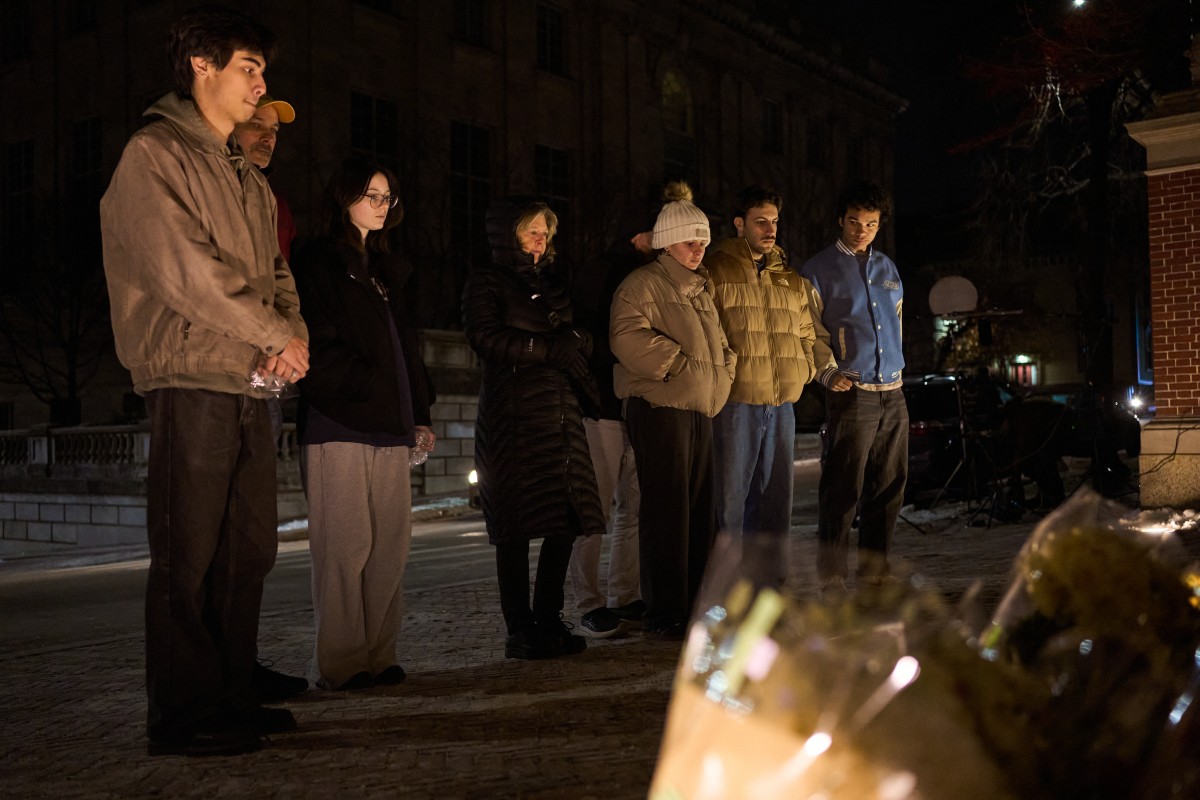
According to the statement, investigators are “seeking the public’s help to identify and speak with an individual” who was seen “near” the suspect at the time of the attack.
The Providence Police Department in Rhode Island released three photos of the person of interest, whose face has been blurred. In the images, the individual is wearing navy blue clothing, what appears to be a green hood, and carrying a light-colored backpack.
Earlier, authorities had released several photos and videos of a suspect described as “approximately 5 feet 8 inches tall, with a stocky build,” dressed in dark clothing, with their face covered by a surgical mask and wearing a beanie. The suspect’s identity remains unknown.
Authorities are offering a $50,000 reward for any information leading to the identification, arrest, and conviction of the person responsible for the killings, who is considered armed and dangerous.
The gunman opened fire on Saturday at Brown University’s engineering and physics building, where exams were being held, killing students Ella Cook and Mukhammad Aziz Umurzokov. The names of the nine people injured have not been released.
International
Police investigate deaths of Rob Reiner and wife as apparent homicide

The Los Angeles Police Department (LAPD) is investigating the deaths of Hollywood actor and filmmaker Rob Reinerand his wife as an “apparent homicide,” amid a wave of tributes to the director of classics such as When Harry Met Sally.
According to U.S. media reports on Sunday, Rob Reiner and Michele Singer Reiner were found dead at their Los Angeles mansion with what appeared to be stab wounds.
Several political figures shared messages of condolence following the reported deaths of the director of A Few Good Menand his wife.
While the LAPD did not officially confirm the identities of the victims, it stated that homicide detectives were dispatched to the Reiner residence.
“At this time, no additional details are available and the investigation into an apparent homicide is ongoing,” the Los Angeles Police Department said in a statement posted on social media.
LAPD Deputy Chief Alan Hamilton told reporters that no arrests have been made and that no individuals are currently being questioned as suspects.
“I’m not going to confirm whether anyone is being questioned at this moment or not. We are going to try to speak with as many family members as we can,” Hamilton said.
CNN reported that a family spokesperson confirmed the deaths of Reiner and his wife.
California Governor Gavin Newsom, former U.S. President Barack Obama, and former Vice President Kamala Harrisissued statements expressing their condolences.
-

 Central America4 days ago
Central America4 days agoPanama seizes over three tons of drugs hidden in Caribbean port container
-

 International4 days ago
International4 days agoPolice investigate deaths of Rob Reiner and wife as apparent homicide
-

 Central America4 days ago
Central America4 days agoOAS urges swift recount in Honduras as election results remain uncertain
-

 Central America2 days ago
Central America2 days agoEl Salvador ranks among top countries in the Americas in fight against organized crime
-

 Central America2 days ago
Central America2 days agoBukele says AI partnership with xAI will transform public education in El Salvador
-

 International1 day ago
International1 day agoRubio rules out 2028 presidential bid if Vance runs
-
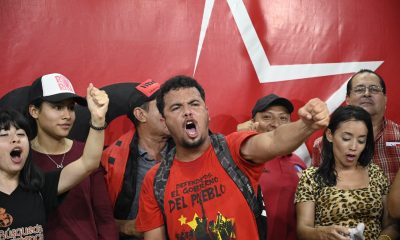
 Central America1 day ago
Central America1 day agoArrests and clashes in Tegucigalpa as vote count continues after Honduras election
-
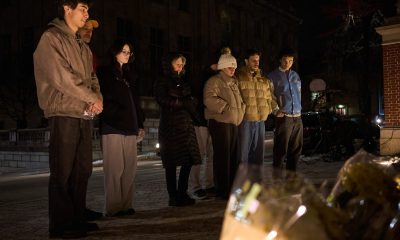
 International1 day ago
International1 day agoAuthorities search for armed and dangerous suspect in fatal Brown University attack









































